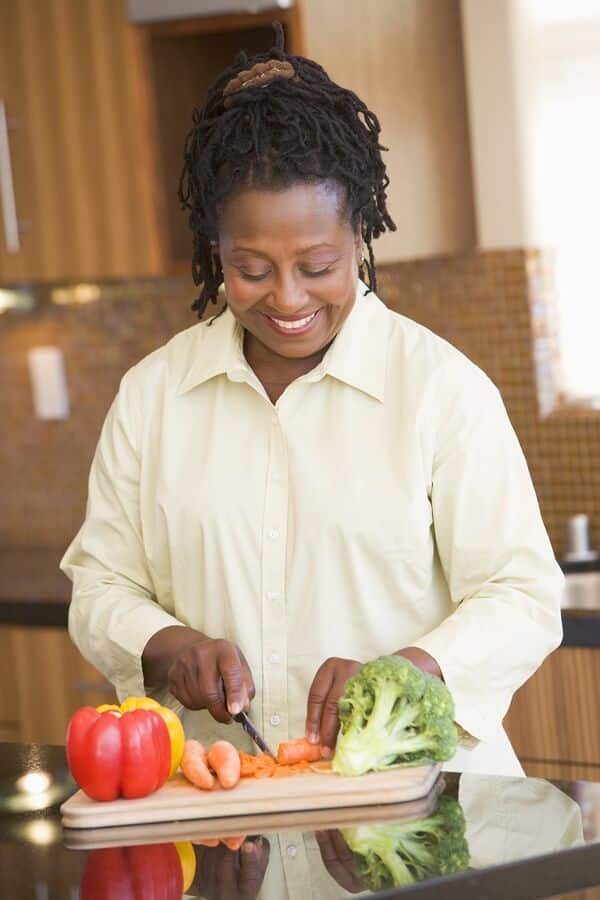Georgia loved to cook. One of her great joys was having a monthly family meal for her children and grandchildren. She would spend all day cooking and baking to serve a scrumptious family meal that left the entire family raving. Georgia loved to try new recipes and share them with her children. When she suffered a stroke, Georgia lost the use of her left hand. She had no idea how she would be able to cook anymore, and the thought left her feeling depressed. However, with the help of some techniques she learned, special devices for one-handed cooks, and help from her home health care provider, Georgia was eventually able to make the meals her family loved again.

Below are 5 tips that could help your aging relative cook again after a stroke.
#1: Get the Right Cooking Tools
There are many tools designed specifically for people with disabilities. You can find out more about them by doing an Internet search for adaptive cooking tools. An occupational therapist can also tell you about tools that will be useful for the older adult’s specific disabilities.
Some tools they may find helpful are:
Adaptive Cutting Board: Cutting boards come with all kinds of adaptations like suction cups to hold them in place and spikes or straps that keep the food in place, so a second hand isn’t required to hold it.
Electric Can Opener: There are several kinds of electric can openers that take just one hand to attach them to the can. After that, the can opener takes care of the rest of the task.
Clamp-On Vegetable Peeler: Get a vegetable peeler that attaches to the edge of the counter and lets the senior run the vegetable over the peeler blade with one hand.
#2: Go Back to Basics
Start by learning how to do basic cooking tasks with one hand, like peeling a potato or spreading butter on toast. Once they’ve mastered these, they’ll be ready to try harder things.
#3: Start with Simple Recipes
Once the older adult is ready to try something a little tougher, start with very simple recipes. Have them try something that has just a few ingredients. Successfully making something easy will help them to build confidence and encourage them to keep cooking.
#4: Do All the Prep First
Having a stroke can cause fatigue, so cooking could be more exhausting than it used to be. It can help to first gather everything needed to make the dish. Place all the necessary tools and ingredients on the counter. If anything needs to be chopped, do that first and set it aside. That way, the older adult doesn’t have to walk across the kitchen several times. They can just sit down and cook.
#5: Cook with Home Health Care Aides
Home health care providers can help seniors to cook after having a stroke. A home health care provider can act as the older adult’s assistant, doing the tasks that are difficult for them. A home health care provider could gather all of the equipment and ingredients for the senior, so they don’t wear themselves out before they even start. Home health care providers can also open jars, lift heavy pans, and take things out of the oven.
Sources: https://www.saebo.com/tips-one-handed-cooking-stroke/
http://www.stroke-network.com/articles/tips-from-the-trenches-cooking
http://www.strokesmart.org/new?id=212
If you or an aging loved one are considering Home Health Care Services in Newton MA, or anywhere in Eastern Massachusetts, please call the caring staff at CARE Resolutions – (508) 906-5572.
- How To Help Your Senior Parent If You Live Far Away - January 7, 2025
- Common Concentration Problems after a Stroke - December 16, 2024
- Happy Holidays From Care Resolutions - December 10, 2024



